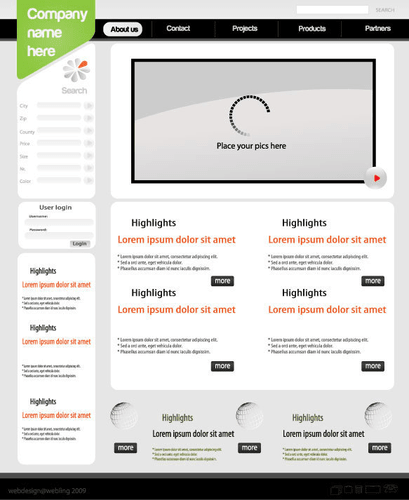
As a business owner, establishing good financial controls and creating an operating budget to account for spending will help keep your business expenses in check. If the employee is salaried, their pay will be considered a fixed operating expense because it’s consistent. Hourly wages, on the other hand, are a variable expense because they fluctuate based on the number of hours worked.

What is Accounts Receivable Collection Period? (Definition, Formula, and Example)
These processes require careful organization of receipts for rent, utilities, payroll, insurance, cost of goods sold, and other expenditures. Companies incur operational expenses as part of regular business operations that don’t directly relate to producing or delivering goods and services. In contrast to operating expenses, non-operating expenses are generated by secondary business activities or external factors unrelated to the company’s primary operations. While these costs are necessary for running your business, they also present opportunities for optimization and efficiency improvements. As a business owner, staying informed about your operating expenses and actively managing them will contribute significantly to your company’s financial health and sustainability. Understanding the diverse impact of operating expenses on your business performance is crucial for effective financial management.
- Most companies benefit from standard groupings such as rent and facilities, payroll and benefits, marketing expenditures, office supplies, professional services, travel expenses, and technology costs.
- For example, home-based businesses may deduct a portion of home expenses, restaurants may have special rules for food and beverage costs, and healthcare providers must consider regulations on medical expenses.
- This may lead to unhappy customers, who may take their business elsewhere, resulting in a decrease in revenue and lower profits in the long run.
- Conversely, capital expenses are large, one-time investments that improve or expand a company’s output.
- Normally, operating expenses are recorded in the income statements to determine the operating income after taking them out from gross profits.
- They’re ongoing expenses that your business incurs to remain functional and generate revenue.
- Capital expenditures (CapEx) are the funds your company uses to acquire, upgrade, and maintain physical assets like property, plants, or equipment (PP&E).
#3. What Financial Statements Are Operating Expenses Included In?
Monthly income statements highlight overall performance trends, while detailed expense reporting reveals specific opportunities for improvement. Perhaps marketing spending increased without corresponding revenue growth, or technology costs gradually expanded through accumulated subscriptions. Two complementary approaches help organize operating expenses in ways that illuminate different aspects of business spending. The second classification method organizes expenses by functional category, grouping costs according to the business purpose they serve, such http://basecamp.friendlyhuman.com/what-is-amortization-types-examples-and-importance-4/ as personnel, facilities, marketing, or technology.
Operating Expenses: Definition, Types, Examples, and Accounting Treatment
Examples of fixed operating expenses include rent or lease payments, salaries of administrative staff, insurance premiums, and depreciation. They can include rent, utilities, salaries, office supplies, and depreciation. These costs are necessary for a company to continue its normal business operations and are usually unavoidable. Operating expenses are recorded in the income statement of a company during the period in which they are incurred.

Operating Expenses (OpEx): Definition, Formula, and Example
Rental payments for office space, warehouses, or retail locations fall under the OpEx category. Miscellaneous ad-hoc purchases like office supplies, equipment, and furniture also count as operating expenses. These trends in automation, technology, and sustainable practices are shaping a future of growth and efficiency in operating expenses across multiple industries. This evolution is crucial for businesses aiming to stay competitive and adapt to evolving customer expectations and market demands. An increase in operating expenses can result from various factors, such as rising utility costs, escalating wage rates, or inflation. Business owners must closely monitor such increases and adapt their financial strategies accordingly to prevent adverse impacts on their bottom line.

Accrual basis vs. cash basis accounting
No, except for costs directly attributable to acquiring or producing a fixed asset (then recorded as How to Invoice as a Freelancer CapEx). This leads to better cash flow visibility, improved compliance, and faster month-end closings. By reducing manual errors and enhancing data accuracy, AI empowers finance teams to focus more on strategic planning and less on routine operations.

Where do operating costs appear on the income statement?

Generally, operating expenses cannot be capitalized and are typically expensed in the period they are incurred. Operating expenses are ongoing costs incurred during regular business operations, while startup costs are one-time expenses incurred when establishing a new business. To maintain healthy profit margins, it’s essential to regularly review and optimize your operating expenses without compromising the quality of your operating expenses include which of the following? products or services. Non-operating expenses are costs not directly related to the primary business activities.
Capital expenses, or CapEx, can include things like patents, machinery, and business real estate. It’s important to distinguish between operating and non-operating expenses when filing your business taxes. The Internal Revenue Service allows businesses to deduct most operating expenses that are necessary for business operations.
Tax filing
Rent is a fixed cost; a company that rents a factory to manufacture its products must pay rent even when there is a change in what it produces. One of the main goals of a business is to maximize profits, which are the revenues the company generates minus the expenses it incurs. When revenue increases, profits also increase; an increase in expenses, however, can cut into profits. As a result, businesses often try to reduce operating expenses to increase profits, which can often be done more quickly and easily than increasing revenue. Operating expenses (OpEx) differ from capital expenditures (CapEx), which are recorded as assets on your balance sheet rather than immediately deducted on your income statement. CapEx includes long-term investments such as real estate, machinery, and intellectual property, which are gradually depreciated or amortized over time.